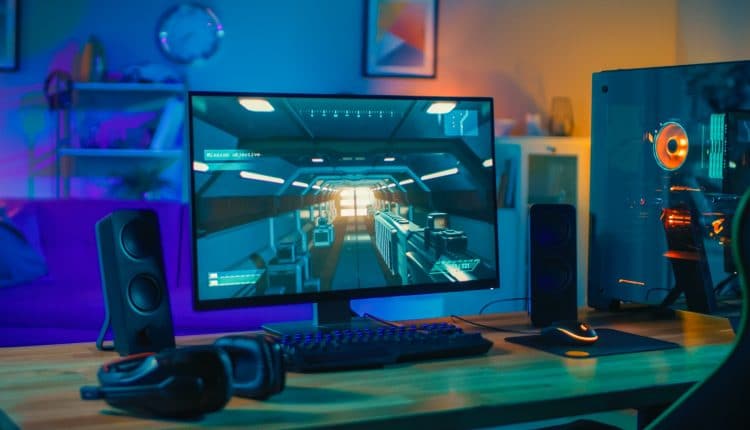Yes, Custom PCs Are Usually Cheaper
Building a gaming custom PCs can be cheaper than buying one pre-made, but it’s not for everyone. You’ll need to have some basic computer skills, and you should understand the difference between an APU, CPU, and GPU.
If this is all Greek to you, the good news is, help is easily available. You can seek out forums, Facebook groups, tech experts, and even sellers of PC parts. They can offer advice on upgrading old systems or building new ones from scratch.

Why Customize Your PC
You will find that PCs are pretty cheap to buy these days, so why should you go through the hassle of building one? Unless you go for a very small no-frills model, it will cost more than $500—often double that. Even then, you will find that pre-built PCs are likely without an operating system, and most don’t even have a DVD or Blu-ray drive.
When building the PC yourself, you can select exactly which components you need for the type of gaming you want to do. You can also save money by choosing cheaper components. Then, you can invest your savings in more important things like extra RAM and a better monitor. This is especially relevant if you want to play less demanding games like League of Legends, World of Tanks, Minecraft, or DOTA 2.
But there’s a difference between wanting to get the best quality for your money and being greedy. Don’t spend more than you need to.
How to Build a Gaming PC
Many excellent guides online can help you through the process of building your own gaming rig, and most pre-built PC manufacturers have some build configurator tool on their website too.
If it’s your first time, it might be worth following a how-to guide or video tutorial to get familiar with the parts. Once everything’s coming out of the box and connected, it can be tricky to figure out what goes where.
You can also take a shortcut: use a custom PC builder. This company already has the parts you need. You choose which ones you like to add to your PC, and it will deliver the final product to your doorstep. As mentioned, because you have full control over what goodies go into your tech, you will find this process not only easy but also worth the money.
The following parts list should give you a good idea of what you need to build a gaming PC:
1. CPU (Central Processing Unit)
A modern Intel quad-core chip will easily run most modern games. But don’t get one with more than four cores unless it’s a six- or eight-core model. The higher the GHz number too, the faster and more efficient the processor will be.
Some eighth-generation processors are still reasonably priced, making for powerful building blocks in a gaming PC build.
2. Motherboard
This connects all your components. Make sure it fits whatever CPU you choose and has enough PCI-E slots to support any graphics card you buy. A good rule of thumb is to have no less than four slots (more = better).
3. Memory
RAM isn’t cheap, but 8GB should be the absolute minimum you go for. DDR4 is fairly standard these days, and most motherboards will support more than one stick at a time, so you can add another 4-8GB later if needed.
4. Hard Drive
This is where you keep your operating system and other software like games and apps. The best advice here is just getting at least 1TB (1,000GB) or even 2TB if you can afford it. Keep in mind that some games these days take up 20+ GBs by themselves. Do not opt for an SSD instead unless you’re on a budget.
5. Graphics Card
This thing will do most of the work when it comes to displaying games on your monitor. Don’t skimp here. If you’re looking for a gaming PC, then you need a graphics card that can handle pretty much any game out there at reasonable settings.
6. Case
This is where your finished rig will go and look cool. A simple case with no windows or LEDs is fine for most builds, but of course, you can splash out on something fancier if you have the cash.
7. Power Supply
Most decent gaming PCs will need a minimum of 600 watts, though you can get away with something as little as 450W if your build is super efficient and simple.
Some types of stuff that are nice to have but not essential include case fans, optical drives (if you still buy and play physical disks), USB 3.0 hubs, etc. But these days, most modern cases come with at least one built-in fan. Don’t worry about adding extra cooling for the CPU. Also, it’s worth noting that some basic motherboards support up to 56K to 120K via USB, which is plenty fast enough for any gamepad or controller.
If you are looking for a new computer and don’t want to pay the high prices of buying one off the shelf, consider building your own. It may require some technical knowledge, but getting help is easy. You can even work with a builder to save both time and costs.
